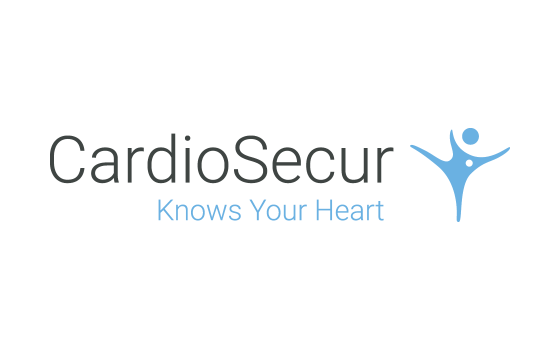 Cardiovascular diseases are still one of the most common causes of death worldwide, that is why today it is more important than ever to know about one's heart. The ideal method for detecting heart events is to perform ECG readings at regular intervals. In addition, the guidelines of the European Society of Cardiology (ESC) as well as those of the German Society of Cardiology (DGK) call for personalized ECG evaluations of heart patients in the form of serial ECG measurements, comparing the individual's normal ECG with a potentially pathological one. This is because every person’s ECG is as unique as a fingerprint and it undergoes changes as a result of heart events, medical interventions and treatments (e.g. ablation, medication, bypass, cardiac pacemaker, etc.). The guidelines also require the recording of the posterior and right side of the heart in addition to the classic 12-lead-ECG in case that a heart attack is suspected.
Cardiovascular diseases are still one of the most common causes of death worldwide, that is why today it is more important than ever to know about one's heart. The ideal method for detecting heart events is to perform ECG readings at regular intervals. In addition, the guidelines of the European Society of Cardiology (ESC) as well as those of the German Society of Cardiology (DGK) call for personalized ECG evaluations of heart patients in the form of serial ECG measurements, comparing the individual's normal ECG with a potentially pathological one. This is because every person’s ECG is as unique as a fingerprint and it undergoes changes as a result of heart events, medical interventions and treatments (e.g. ablation, medication, bypass, cardiac pacemaker, etc.). The guidelines also require the recording of the posterior and right side of the heart in addition to the classic 12-lead-ECG in case that a heart attack is suspected.
CardioSecur is the only technology in the world that practically implements the ESC and DGK guidelines and puts them into private hands. The first time CardioSecur Active is used, the system records a personal reference ECG to capture the current state of cardiac health with 15-lead ECG technology (15 visual axes) requiring simply 4 electrodes. All subsequent ECG readings are compared to that personal reference. This unparalleled comparison, based on 15-lead-ECG-techonology, allows for truly personalized and accurate detection of any ECG changes and gives the user an immediate trigger to act if medical help is required. A reading can be taken anytime and anywhere, takes only a few seconds and feedback is always given in disregard of internet availability.
Currently, there are many mobile gadget ECGs on the market. Yet most of them (e.g. Apple WatchTM, AliveCor KardiaTM etc.) are based on 1-lead ECG technology. This means that they only offer a single visual axis on the heart, which severely limits their medical relevance. Being mere screening tools, they in some instances offer clues for atrial fibrillation (Afib), but do not allow for a guideline compliant diagnosis. Importantly life-threatening heart attacks cannot be detected throughout. Moreover, the signal quality of these systems is limited, so that an interpretation of the ECGs is not always possible, as recent studies clearly show.[1] In addition, gadget ECG devices do not offer a personalized assessment of the heart but only a general evaluation of the 1-lead ECG. Altogether, the problems and limitations of gadget ECG devices cause many erroneous and inconclusive diagnoses.
While gadget ECG devices can only speculate about a potential heart problem in individual cases, CardioSecur Active provides accurate results that can even be automatically shared with the personal physician. The medical benefits of personalized ECG technology are tremendous. Doctors can attain a conclusive diagnosis on any type of complex arrhythmia, prevent strokes and life-threatening heart attacks including the anterior and posterior walls of the heart. This enables them to immediately initiate an effective therapy. CardioSecur is the most precise mobile ECG device currently available on the market. With its 15-leads and only 4 electrodes it surpasses even the established 12-lead ECG gold standard.
For further information, please visit:
http://www.cardiosecur.com
Personal MedSystems GmbH develops and sells ECG systems and services for private users and healthcare professionals under the name CardioSecur. CardioSecur Active is an innovative, 15-lead, clinical-grade ECG for personal use. In a few seconds, it generates personalized feedback regarding changes in the heart's health and provides a simple recommendation to act regarding whether to see a doctor or not. The entire system consists of a 50g light cable with four electrodes, the complimentary CardioSecur Active App and the user’s smartphone or tablet. CardioSecur Pro is the mobile, clinical ECG solution for physicians and medical professionals. CardioSecur Pro operates based upon guidelines from the European Society of Cardiology by providing 22 leads, making a 360° view of the heart possible. It is the only system that thereby recognizes infarctions of the anterior, lateral and posterior walls of the heart.
1. Loftus, Peter. (2019, 16 March). 'Apple Watch Has Mixed Results in Big Heart Study'. Wall Street Journal.